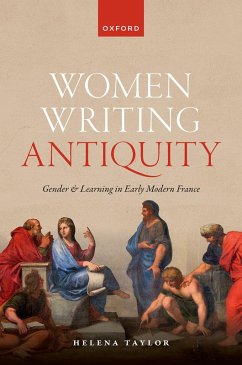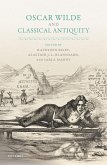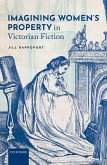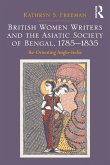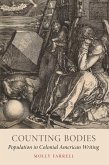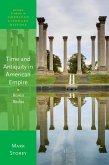Women Writing Antiquity argues that the struggle to define the female intellectual in seventeenth-century France lay at the centre of a broader struggle over the definition of literature and literary knowledge during a time of significant cultural change. As the female intellectual became a figure of debate, France was also undergoing a shift away from the dominance of classical cultural models, the transition towards a standardized modern language, the development of a national literature and literary canon, and the emergence of the literary field. This book explores the intersection of these phenomena, analyzing how a range of women constructed the female intellectual through their reception of Greco-Roman culture. Women Writing Antiquity offers readings of known and less familiar works from a diverse corpus of translators, novelists, poets, linguists, playwrights, essayists, and fairy tale writers, including Marie de Gournay, Madeleine de Scud?ry, Madame de Villedieu, Antoinette Deshouli?res, Marie-Jeanne L'H?ritier, and Anne Dacier. Challenging traditionally formalist and source-text orientated approaches, the study reframes classical reception in terms of authorial self-fashioning and professional strategy, and explores the symbolic value of Latin literacy to an author's projected identity. These writers used reception of Greco-Roman culture to negotiate the value attributed to different genres, the nature of poetics, the legitimacy of varied modes of authorship, the qualities and properties of French, and even how and by whom these topics might be debated. Women Writing Antiquity combines a new take on the literary history of the period with a retelling of the history of the figure of the 'learned woman'.
Dieser Download kann aus rechtlichen Gründen nur mit Rechnungsadresse in A, B, BG, CY, CZ, D, DK, EW, E, FIN, F, GR, HR, H, IRL, I, LT, L, LR, M, NL, PL, P, R, S, SLO, SK ausgeliefert werden.

